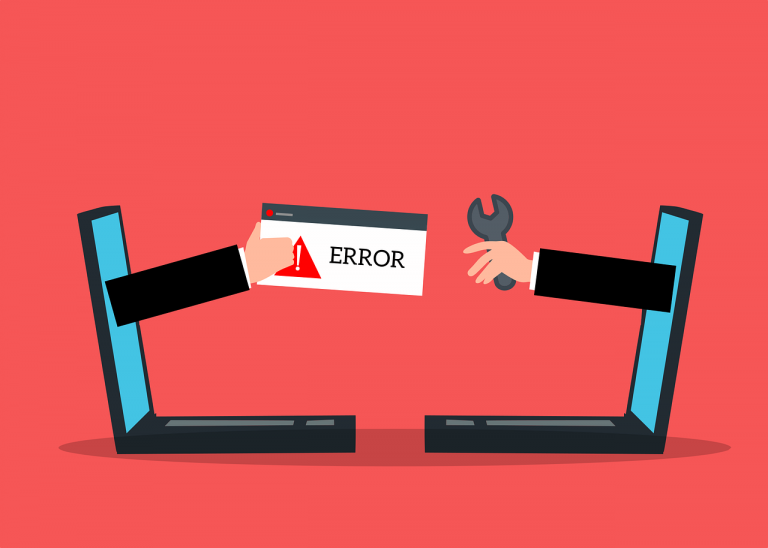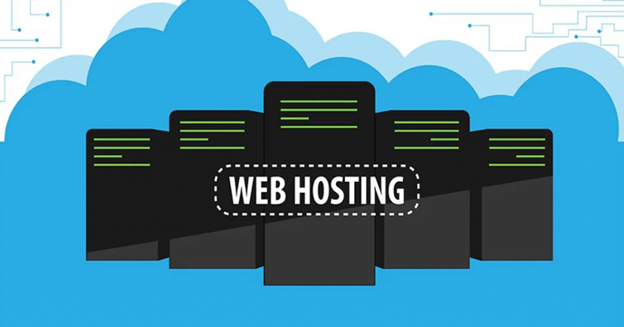In today’s digital age, having a website is crucial for every business. While word of mouth can be beneficial, it has its limits. To sustain and grow your business, you need a way for potential customers to discover you, and that’s where a website becomes indispensable.
If you already have a vision for your website, it’s a great start. However, have you considered the significance of selecting the right web hosting service? The choice of web hosting is pivotal as it directly impacts your website’s performance and security, ultimately reflecting on your business’s overall image and brand reputation. But, with the multitude of web hosting services available, making the right decision can be a daunting task.
As your online presence is essentially the face of your business in the digital world, the quality of web hosting will dictate how your website operates and how visitors perceive your brand. A reliable web hosting service ensures that your website remains accessible, loads quickly, and can handle varying traffic levels. On the other hand, a poor hosting choice may result in frequent downtime, slow loading speeds, and a frustrating user experience, which can deter potential customers and harm your reputation.
Security is another critical aspect to consider when selecting a web hosting provider. Cyber threats are ever-present, and a reputable hosting service employs robust security measures to safeguard your website and customer data from breaches, malware, and hacking attempts. A breach can lead to severe consequences, including loss of sensitive information and damage to your business’s credibility.
With a myriad of web hosting options available, each offering different features and pricing plans, making the right choice might seem overwhelming. However, a thorough evaluation of factors such as uptime guarantees, customer support responsiveness, server locations, storage capacity, and scalability will help you make an informed decision.
In summary, having a website is an essential tool for your business’s growth, but its effectiveness relies heavily on choosing the right web hosting service. By ensuring top-notch performance and security, the chosen hosting provider becomes a pivotal partner in elevating your online presence and cultivating a positive perception of your brand among your target audience.
In this article, I will lay out the key things to consider to help you choose the right web hosting service for you.
Main considerations
1. Pricing and value
In the pursuit of profitability, every business needs to make strategic investments. When starting a venture, allocating funds wisely is crucial, especially when it comes to web hosting expenses.
While a solid web hosting plan is essential, you don’t want to drain your life savings on an expensive package as a newcomer. Conversely, if your website represents a major brand, opting for a low-cost plan might compromise essential features and performance.
One critical consideration is the pricing structure and the cost of renewing your hosting account. It’s vital to look beyond the initial sign-up cost and carefully assess the renewal fees. Surprisingly, some hosting providers raise their prices significantly upon renewal, catching customers off guard with unexpectedly higher expenses down the line.
To make a prudent decision, evaluate your website’s specific requirements and growth projections. For a fledgling business, a cost-effective plan with essential features might be the best choice. As your enterprise expands, upgrading to a more robust hosting package can be a strategic investment.
For larger brands or mission-critical websites, investing in a reputable hosting service with top-notch performance, security, and support becomes imperative. It ensures that your website operates smoothly, delivers a seamless user experience, and upholds your brand reputation.
In conclusion, finding the right balance between cost and features is crucial when selecting a web hosting plan. Consider the long-term implications of the renewal pricing, and align your decision with your business’s current needs and future growth aspirations. A well-chosen hosting solution will be an asset that contributes to your success rather than a burden that depletes your resources.

Image by vectorjuice on Freepik
2. Uptime and load time
One of the foremost considerations when choosing a web hosting provider is the average uptime, which represents the duration your website remains accessible within a specific timeframe. The significance of your website’s average uptime lies in its direct impact on the amount of traffic your site receives. If visitors cannot access your website when they visit, it can significantly hinder its reach and potential success.
Even a mere hour of downtime translates into missed opportunities and potential sales losses for your business. To maximize your website’s potential, it is crucial to aim for an average uptime of 100% or as close to it as possible. A hosting provider with a consistently high uptime ensures that your website remains available to visitors, leading to increased traffic and better chances of converting leads into customers.
Conversely, an average uptime below 99.90% is a red flag, indicating that your current hosting provider may not be reliable enough to meet your business needs. In such instances, it is wise to proactively seek a different web hosting provider that can offer a more robust infrastructure and minimize the risk of frequent and prolonged downtime.
In summary, the average uptime of your website plays a pivotal role in determining its success by directly influencing its traffic and potential sales. Opting for a hosting provider with excellent uptime performance is critical to ensuring that your online presence remains consistently accessible to visitors, maximizing your chances of growth and profitability.

3. Support
The web hosting provider’s customer support is a critical factor to evaluate before making your decision. Having reliable and helpful customer support ensures that you can address any website issues promptly and effectively.
Web hosting companies typically offer customer support through various channels, such as phone, chat, or ticket-based systems. However, the real value lies in the responsiveness and expertise of their support team.
A responsive customer support team means that you can get assistance quickly, minimizing any potential downtime and preventing prolonged disruptions to your website’s operations. Time is of the essence when dealing with technical problems, and a swift response from the support team can make a significant difference in resolving issues promptly.
Equally important is the knowledge and expertise of the support staff. A knowledgeable team can provide accurate and effective solutions to your problems, saving you valuable time and effort. They can also offer insights and advice on optimizing your website’s performance, security, and other technical aspects.
Before committing to a web hosting provider, it’s a good idea to research customer reviews and testimonials to gauge the quality of their customer support. Look for positive feedback regarding the support team’s responsiveness, helpfulness, and technical proficiency.
In conclusion, the level of customer support offered by a web hosting provider can directly impact your website’s uptime and overall user experience. A responsive and knowledgeable support team ensures that you can swiftly resolve any issues that may arise, allowing you to focus on growing your business without unnecessary technical obstacles.

Other considerations
4. Storage and bandwidth
Web hosting bandwidth refers to the volume of data a website can deliver to its visitors within a specific timeframe. Thus, a web hosting provider offering higher bandwidth is advantageous, as it allows for smoother and faster data transmission to accommodate increased traffic.
Likewise, storage or disk space is a critical consideration, and the more you have, the better. Disk space, as the term implies, determines the amount of content your website can store, encompassing text, images, code, databases, and even email data.
Having ample bandwidth is vital for ensuring your website can handle a surge in visitor traffic without experiencing sluggish loading times or downtime. It guarantees a seamless user experience, keeping visitors engaged and more likely to return.
Similarly, sufficient storage capacity is essential to house all the necessary elements that comprise your website, including multimedia content, code files, and vital data. Adequate storage space prevents content restrictions and allows you to expand your site with ease as your business evolves.
When choosing a web hosting plan, it is essential to assess both bandwidth and storage offerings carefully. A well-balanced combination of these resources ensures that your website can efficiently deliver content to visitors while maintaining a robust and scalable foundation to accommodate future growth.
5. Security
Certain web hosting providers include free SSL as an integral part of their hosting plans. When we mention web hosting SSL, we are typically referring to SSL certificates, which play a vital role in enhancing security and establishing trust on websites. An SSL certificate creates an encrypted connection between the user’s browser and the server, symbolized by the familiar padlock icon before the URL and the addition of “HTTPS” in the website address.
The significance of SSL lies in its ability to secure website transactions by encrypting any data transmitted through it. This becomes particularly crucial for e-commerce websites that handle sensitive information such as payment details, personal data, and login credentials.
By implementing SSL, a website ensures that any information exchanged between the user and the server remains confidential and protected from potential hackers or eavesdroppers. This encryption provides peace of mind to both website owners and visitors, fostering a secure online environment that encourages user engagement and trust.
In summary, web hosting providers offering free SSL certificates as part of their plans contribute to a safer online experience for visitors and reinforce the credibility of websites, especially those conducting e-commerce transactions. The presence of SSL not only safeguards sensitive data but also bolsters the website’s overall security posture, making it an indispensable feature for modern websites.

Image by Freepik
To conclude
Choosing the right web hosting is crucial. With numerous options available, finding the ideal one can be challenging. Consider your website’s needs, reliability, security, customer support, and pricing. Read reviews to make an informed decision for a successful online presence.

Goryee Wong
Goryee loves the outdoor and enjoys time spent with kids around him, whether it’s out in the nature or simply in his backyard’s swimming pool.
As a content creator at G1 Solution, he gets inspired by his daily living and publishing contents for the blog and social networks.
